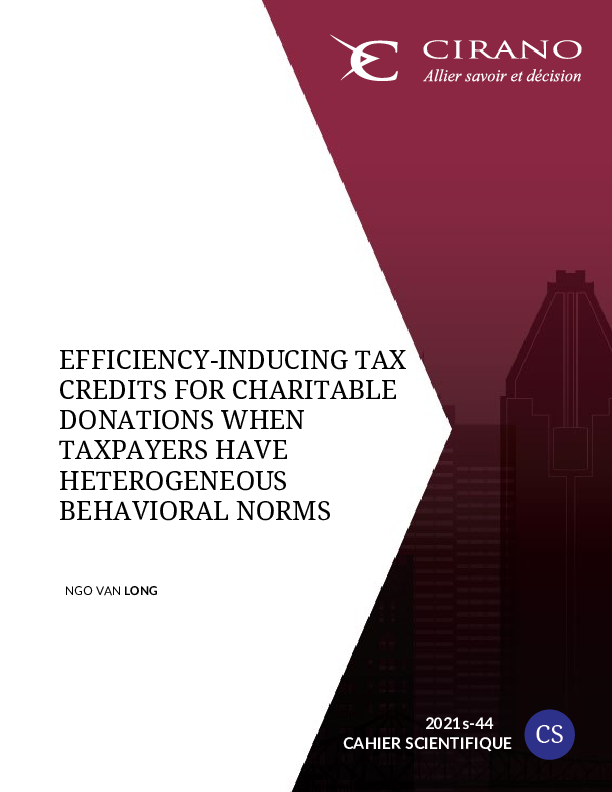Efficiency-inducing tax credits for charitable donations when taxpayers have heterogeneous behavioral norms
We consider an economy in which some taxpayers behave in a Kantian way in their donation behavior while others are Nash players. A Kantian taxpayer holds the norm that any suggested deviation from a proposed equilibrium profile would be adopted by him only if when all members of their community adopted the same deviation, they would all achieve a higher level of welfare. In contrast, a Nash player follows the individual rationality criterion: He would deviate if, assuming all others do not deviate, he would improve his own payoff. We show that if all taxpayers are Nash players, then there is an efficiency-inducing tax credit scheme for charitable contributions. In contrast, if all taxpayers are Kantian, the optimal tax credit for charity is zero. If both types of taxpayers co-exist, and the government does not know who is of what type, then it is not possible for the government to induce the first-best outcome, but it must rely on a second-best tax-credit scheme.




